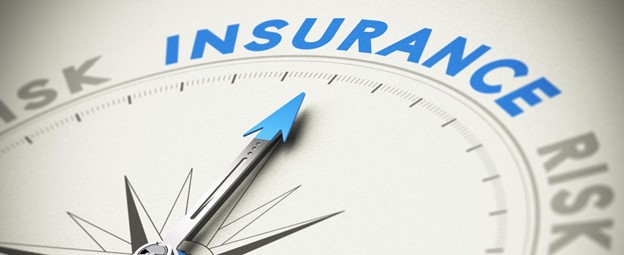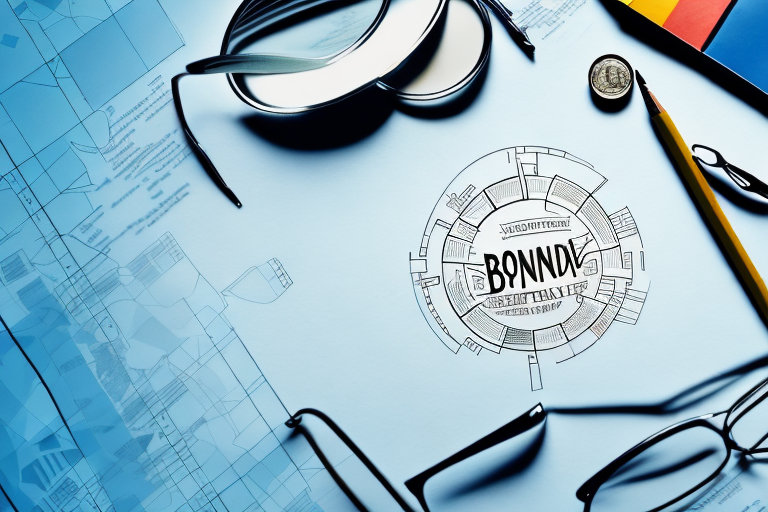
Understanding Commercial Insurance: What You Need to Know
In today’s dynamic business environment, having insurance coverage is essential for any organization’s long-term stability and success. Commercial insurance provides protection against various risks that businesses face, ensuring that they can continue to operate without significant financial setbacks. To make informed decisions about commercial insurance, it is crucial to understand the basics, types, factors influencing costs, how to choose the right coverage, and the claims process. This article aims to provide a comprehensive overview of commercial insurance, empowering business owners and managers with the knowledge they need to protect their ventures.
The Basics of Commercial Insurance
Before diving into the intricacies of commercial insurance, it is essential to define what it encompasses. Commercial insurance refers to a range of coverage options designed specifically for businesses. It offers protection against financial losses resulting from property damage, liability claims, and other perils, depending on the policy details. A robust commercial insurance package can safeguard physical assets, cover legal expenses, and provide compensation for injured employees. By understanding the fundamental principles of commercial insurance, businesses can grasp the importance of this coverage and the risks it mitigates.
Defining Commercial Insurance
Commercial insurance can be broadly defined as a contract between an insurance company and a business, under which the insurer agrees to compensate the insured for specified risks in exchange for premium payments. These risks can include property damage, loss of income, liability claims, and more, depending on the policy’s coverage provisions. In essence, commercial insurance provides a safety net that shields businesses from substantial financial losses that could otherwise jeopardize their operations.
When it comes to commercial insurance, there are various types of policies available to cater to different business needs. Some common types of commercial insurance include property insurance, general liability insurance, professional liability insurance, workers’ compensation insurance, and commercial auto insurance. Each type of policy offers specific coverage for different aspects of a business’s operations, ensuring comprehensive protection against potential risks.
For example, property insurance covers physical assets such as buildings, equipment, and inventory against damage or loss due to fire, theft, vandalism, or natural disasters. General liability insurance, on the other hand, protects businesses from third-party claims of bodily injury, property damage, or advertising injury. Professional liability insurance, also known as errors and omissions insurance, provides coverage for professionals who provide services or advice, protecting them from claims of negligence or errors that result in financial loss for their clients.
Importance of Commercial Insurance for Businesses
Commercial insurance is crucial for businesses of all sizes and industries. It acts as a protective shield, ensuring that unexpected events do not lead to significant financial setbacks or even bankruptcy. By having suitable coverage in place, businesses can safeguard their assets, protect against potential lawsuits, and provide support for employees in times of need. In the face of unforeseen events such as natural disasters, accidents, or legal claims, commercial insurance serves as a critical tool for business continuity and peace of mind.
One of the key benefits of commercial insurance is its ability to provide financial protection for businesses in the event of property damage. For example, if a fire breaks out in a retail store, causing extensive damage to the building and inventory, commercial property insurance can cover the cost of repairs or replacement, ensuring that the business can quickly recover and resume its operations. Without this coverage, the financial burden of rebuilding or replacing assets could be overwhelming, potentially leading to the closure of the business.
Furthermore, commercial insurance plays a vital role in protecting businesses from liability claims. In today’s litigious society, businesses face the risk of being sued for various reasons, such as slip and fall accidents, product defects, or professional negligence. Without adequate liability coverage, a single lawsuit could result in substantial legal expenses and potential financial ruin. Commercial general liability insurance provides businesses with the necessary protection, covering legal costs, settlements, and judgments associated with covered claims.
Additionally, commercial insurance can provide support for injured employees through workers’ compensation coverage. In the unfortunate event of a workplace accident or illness, workers’ compensation insurance can help cover medical expenses, rehabilitation costs, and lost wages for employees. This not only ensures that employees receive the necessary care and support but also protects businesses from potential lawsuits related to workplace injuries.
In conclusion, commercial insurance is a critical component of risk management for businesses. It offers comprehensive protection against a wide range of risks, including property damage, liability claims, and employee injuries. By investing in commercial insurance, businesses can safeguard their assets, mitigate financial losses, and ensure business continuity in the face of unexpected events. It is essential for businesses to carefully assess their insurance needs and work with knowledgeable insurance professionals to tailor a commercial insurance package that provides adequate coverage for their specific risks and operations.
Types of Commercial Insurance
Commercial insurance encompasses various types of coverage, each addressing different risks businesses face. Understanding the different categories can help businesses assess their specific needs and make informed decisions regarding the types of insurance to purchase.
When it comes to protecting a business, property insurance is one of the most common types of coverage. It provides financial security in the event of damage or loss of physical assets. Imagine a scenario where a business’s building catches fire, destroying not only the structure but also the valuable equipment, inventory, and furniture inside. Without property insurance, the business would face significant financial losses and potentially struggle to recover. However, with the right coverage, property insurance ensures that businesses can rebuild and continue their operations, even in the face of such adversity.
Another crucial type of commercial insurance is liability insurance. This coverage protects businesses from legal claims brought against them by third parties. In today’s litigious society, businesses can face lawsuits for various reasons, such as bodily injury or property damage caused by their products, operations, or premises. Liability insurance steps in to cover the expenses related to legal defense, settlements, and judgments. This financial support allows businesses to navigate legal disputes without incurring significant costs that could disrupt their operations or drain their resources.
While property and liability insurance are vital, businesses must also consider the well-being of their employees. This is where workers’ compensation insurance comes into play. This specialized type of coverage provides benefits to employees who suffer work-related injuries or illnesses. Imagine a scenario where an employee falls from a ladder while performing their duties and sustains a serious injury. Workers’ compensation insurance steps in to cover the employee’s medical expenses, disability benefits, and lost wages. Not only does this protect the employee by ensuring they receive the necessary support, but it also shields the business from potential lawsuits arising from workplace accidents.
These are just a few examples of the types of commercial insurance available to businesses. Other categories include business interruption insurance, professional liability insurance, and cyber liability insurance, among many others. By understanding the risks they face and the coverage options available, businesses can make informed decisions to protect their assets, finances, and employees.
How to Choose the Right Commercial Insurance
Choosing the right commercial insurance requires a careful evaluation of business risks, thorough research on insurance providers, and a clear understanding of policy terms and conditions. By following a systematic approach, businesses can select the coverage that best suits their unique needs and budget.
Assessing Your Business Risks
Before selecting commercial insurance coverage, it is crucial to assess the specific risks facing the business. These risks can vary depending on the industry, location, and other factors. Conducting a comprehensive risk assessment allows businesses to identify the areas where insurance coverage is most needed, ensuring that they can adequately protect their assets and operations.
Comparing Insurance Providers
Once the risks are identified, businesses must research and compare different insurance providers. It is essential to evaluate their reputation, financial stability, and customer reviews. Additionally, comparing policy features, limits, deductibles, and exclusions is crucial to ensure that the selected insurance provider offers the required coverage at a competitive price.
Understanding Policy Terms and Conditions
Before finalizing the commercial insurance purchase, it is vital to carefully review the policy’s terms and conditions. Understanding the coverage limits, exclusions, deductibles, and premium structure will help businesses make informed decisions and avoid potential surprises in the event of a claim. Seeking guidance from insurance professionals or legal advisors can provide valuable insights into complex policy details.
The Cost of Commercial Insurance
Understanding the factors influencing the cost of commercial insurance is essential for businesses striving to allocate resources effectively. By comprehending the intricacies of insurance pricing, businesses can identify ways to manage costs without compromising coverage.
Factors Influencing Insurance Premiums
The cost of commercial insurance policies is determined by various factors, including the size and type of business, location, industry, claims history, coverage limits, deductibles, and risk management practices. Insurance providers assess these variables to calculate the premium amounts, which reflect the level of risk posed by insuring a particular business.
Ways to Lower Your Insurance Costs
While commercial insurance is an essential investment, businesses can employ strategies to lower their insurance costs. Implementing risk management measures, such as improving workplace safety protocols, maintaining proper documentation, and investing in security systems, can positively impact insurance premiums. In addition, businesses can seek out insurance providers that offer discounts for bundled policies or loyalty programs, allowing them to gain cost savings while maintaining adequate coverage.
Claims and Payouts in Commercial Insurance
Understanding the claims process and the intricacies of payouts and deductibles is crucial for businesses to reap the full benefits of their commercial insurance coverage.
When to File a Claim
Knowing when to file a claim is essential to maximize the effectiveness of commercial insurance. Generally, businesses should submit claims promptly after an incident occurs to avoid potential delays and ensure that necessary inspections and assessments take place as soon as possible. Failing to report claims promptly may lead to complications during the claims process.
The Claims Process
The claims process involves notifying the insurance provider about the incident, providing relevant documentation, and cooperating with any investigations or assessments required. Insurance providers typically have dedicated claims representatives who guide businesses through the process, ensuring that claims are handled efficiently and fairly.
Understanding Payouts and Deductibles
Commercial insurance policies often have deductibles, which are the amounts that the insured business must pay before the insurance coverage kicks in. Understanding the deductibles and coverages within the policy is crucial to avoid surprises during the claims process. Additionally, comprehending the payout structure and timelines ensures that businesses can plan their financial recovery accordingly.
In summary, commercial insurance plays a pivotal role in safeguarding businesses from unforeseen risks, providing financial protection, and ensuring business continuity. By understanding the basics of commercial insurance, the different types available, how to choose the right coverage, the cost factors, and the claims process, businesses can make informed decisions that protect their assets, mitigate liabilities, and promote long-term success. With commercial insurance in place, businesses can focus on their core operations, knowing that they have a safety net to weather any storm.

